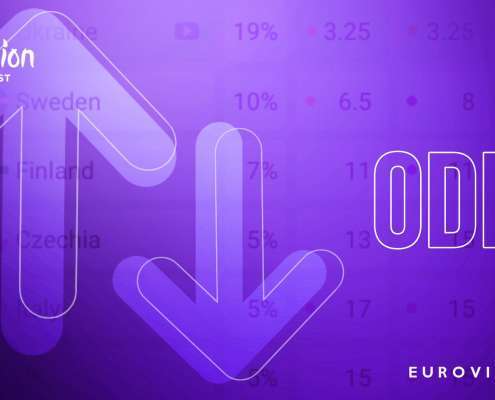
Germany: Käärijä wins Songcheck episode two!
/
0 Comments
In the second episode of Songcheck, the songs from the second…

Eurovision 2023: Netta and former winners will return as Interval Acts!
After yesterday's announcement of the Interval and Opening Acts…

Noa Kirel: “Tattoo is an excellent song but it’ll be difficult for Loreen to achieve a second victory”!
Noa Kirel, Israel's representative in Eurovision 2023, gave an…

Israel: Israel Calling will return in 2024!
The biggest Eurovision Pre-Party in Israel, Israel Calling will…

Israel: Tonight Israel Calling 2023!
Tonight takes place the Israeli Eurovision Pre-Party "Israel…

Eurovision 2023: Swedish lead – Small differences within Top 10
The favorite column of many of you is back as the betting breakdowns…

Eurovision 2023: Watch tonight our poll results for the two semi-finals!
Today is the first station of our Poll, since after the your…

Eurovision 2023: The running order of the semifinals has been revealed!
With a month and a half left for the first semifinal of Eurovision…

Israel: Noa Kirel’s “Unicorn” Official Remix released!
The official remix for Israel's entry "Unicorn" has been released.
Music…

Eurovision 2023: Sweden comfortably at the top!
The favorite column of many of you is back as the betting breakdowns…


